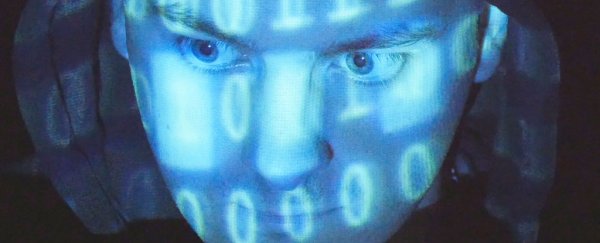The rapid growth in facial recognition systems in the US means that one in two adults across the country has their face logged in databases used by the police – regardless of whether they have a criminal record.
According to new research, more than 117 million people in the US now have their face on file in law enforcement networks. "Innocent people don't belong in criminal databases," says researcher Alvaro Bedoya from Georgetown University.
Not only that, but the existence of these databases is often kept secret from the public, and their use is almost entirely unregulated.
"By using face recognition to scan the faces on 26 states' driver's licence and ID photos, police and the FBI have basically enrolled half of all adults in a massive virtual line-up," says Bedoya. "This has never been done for fingerprints or DNA. It's uncharted and frankly dangerous territory."
Bedoya and fellow researchers at Georgetown Law spent a year investigating law enforcement face recognition systems, sending more than 100 requests for information on these databases to police departments across the US.
The results – which number over 17,000 pages of official documents obtained by the report's authors – show that this massive repository of facial data controlled by police and law enforcement agencies is basically being collected and maintained without any rules.
"Face recognition is a powerful technology that requires strict oversight," says one of the team, Clare Garvie.
"But those controls by and large don't exist today. With only a few exceptions, there are no laws governing police use of the technology, no standards ensuring its accuracy, and no systems checking for bias. It's a wild west."
The researchers identified 52 agencies that acknowledged using face recognition technology, ranging from local and state police departments all the way up to the FBI.
Of these, only one of the institutions (the Michigan State Police) could provide evidence that it had audited its database to guard against misuse. And just four agencies had a publicly available policy on how they use face recognition.
The databases are populated by different means. While 16 US states have authorised the FBI to use face recognition to compare the faces of suspected criminals with driver's licences and ID photos, it's clear the technology is also evolving.
Many local and state police departments maintain their own systems – some of which are more advanced than the FBI's – and the new trend is identifying faces in live video feeds captured by video and CCTV cameras in public places.
"It may seem like science fiction. It is real," the authors write in the report. "Contract documents and agency statements show that at least five major police departments – including agencies in Chicago, Dallas, and Los Angeles – either claimed to run real-time face recognition off of street cameras, bought technology that can do so, or expressed a written interest in buying it."
Aside from the covert way in which these kinds of networks are surveilling law-abiding people, the researchers say these systems aren't always accurate – and will disproportionately affect African Americans, who are over-represented in facial recognition databases.
In response to the report, a coalition of more than 50 organisations led by the American Civil Liberties Union called on the Department of Justice to look into the potential racial bias of police use of facial recognition technology.
So one thing's for sure, we're going to be hearing a lot more about this issue in the future.
As the authors of the report explain, it's not about getting rid of face recognition – but making sure that the way law enforcement uses it is controlled and transparent.
"The benefits of face recognition are real. It has been used to catch violent criminals and fugitives. The law enforcement officers who use the technology are men and women of good faith," the authors write.
"Rather, this report offers a framework to reason through the very real risks that face recognition creates… Citizens are paying for police and FBI face recognition systems. They have a right to know how those systems are being used."
The report, "The Perpetual Line-up", is available online.
